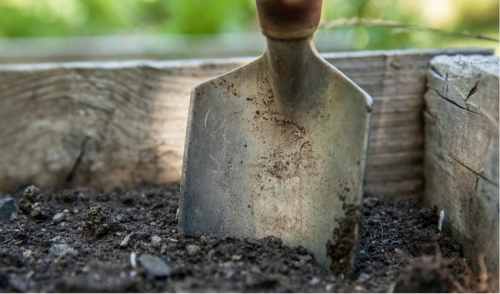
Are You Testing the Soil for Your Plants and Vegetables?
If you are planning on starting a new garden, it is highly recommended that you test your soil. By doing so, you’ll know what the levels of pH and nutrients you’ll be working with are. Armed with this information, you’ll be able to make adjustments that will best benefit the types of plants and vegetables you intend to grow. For existing gardens, testing is essential for yielding the most healthy and abundant crop. Therefore, regardless of whether your garden is new or one you’ve worked for years, testing can make a big difference. Generally, the nutrient levels are low in “new garden” soil and a test can show where adjustments need to be made. Adversely, soil in gardens that receive regular compost can have a high accumulation of nutrients, and testing may show a lesser need for fertilizer, allowing your time and resources to be spent elsewhere.
Most plants grow happily in a soil with a pH level between 6.5 and 7. If you plan on growing a specific variety or type of plant, you can adjust the pH more accurately for optimal yield. What is pH? In regards to soil, it is a measurement of your soil’s acidy. A scale of one, (peak acidity/low alkalinity) to 14 (low acidity/peak alkalinity) is used to gauge your soil’s pH level. A level of seven is considered neutral soil. Why is pH important? For starters, an improper pH level for your specific plant can weaken it, thus making your plant more susceptible to insects and disease. Your yield will also suffer due to these factors.
A common technique for correcting your soil’s pH is to add compost or some other form of rotted organic matter. Because compost acts as a neutralizer, a can be very beneficial in bringing your pH level back to neutral (or 7).
After initial testing, it is recommended to test your soil at least every three years. If you find that your soil has tested consistently well, you can space your tests even further apart. On the other hand, if you notice your plants aren’t doing well and you’re not sure why, a test can help to shed more light on the problem.
Soil test kits can be purchased at most garden centers. They are relatively easy to use and inexpensive. For more detailed results, contact your local Cooperative Extension office and arrange to bring in a soil sample. In most cases, you’ll not only ascertain the pH level, but also other nutrition levels such as nitrogen, phosphorus and potassium (NPK) which are represented by the numbers shown on bags of fertilizer (for example, 10 – 10 – 10).
A good plan of action is to have your soil lab tested every three years and to use a home test kit if you happen to observe any potential issues.
A final tip: when testing your soil, test your water too. The reason being, if your water is tested to be alkaline, it alone may be all you need to help reduce your soil’s acidity.

